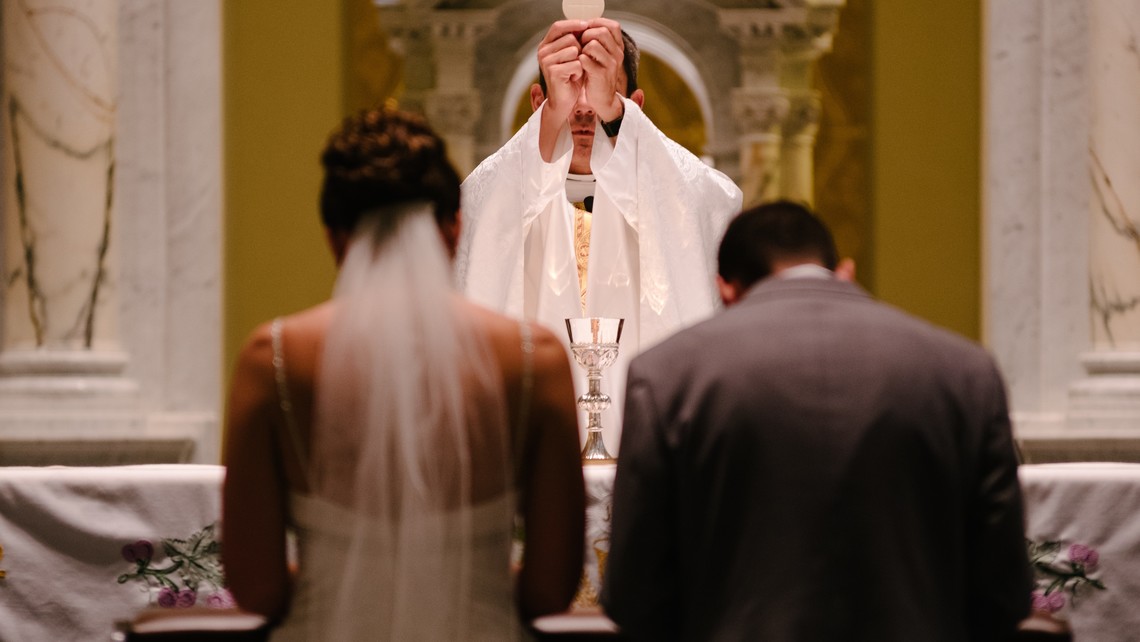
Imagine if everyone around us came to the realization that praying for someone is actually quite a simple act. We would all be constant intercessors for everyone around us, especially our family and friends. The irony here is that something that in many respects is so simple and not necessarily time consuming is quite often overlooked or completely ignored all together.
When you take the time to reflect on the act of prayer it provides an opportunity to communicate Christ for the sake of others and not necessarily ourselves. This is what the act of intercessory prayer is really meant to be a way of looking after the spiritual well-being of others before ourselves. An intercessor intimately and intentionally prays for someone’s spiritual and corporal needs rooted in Christ and reflective of the sacrificial nature offered to us out of love. By our baptism we become natural intercessors calling upon the Blessed Trinity, Our Blessed Mother and the angels and saints for assistance in interceding on behalf of others. St. Paul in his letter to the Romans (12:1-2) alludes to this when he appeals to his brethren:
. . . to present your bodies as a living sacrifice, holy and acceptable to God which is your spiritual worship. Do not be conformed to this world but be transformed by the renewal of your mind that you may prove what is the will of God, what is good and acceptable and perfect.”
St. Therese the little flower would describe prayer as “surge of the heart, a simple look toward heaven embracing both trial and joy (CCC 2558). Her succinct explanation reveals the premise behind intercessory prayer as a Christ-like communication which when applied within the marital covenant strengthens the bond of grace between spouses.
The Fruit of Prayer in Marriage
St. John Paul II in his fruitful work on marriage Love and Responsibility (pg. 73) describes the virtue of love in marriage as: “. . . a mutual relationship between persons. . . Love between man and woman is one particular form of love, in which elements common to all of its form are embodied in a certain way.” The fruit of prayer results in a clearer uninterrupted communication with Christ especially in our understanding of the Paschal Mystery. Christ gave us the sacraments as a means of recognizing who we are as children of God and in turn maturing in this relationship through Him in the sacraments.
It is in this maturation of grace where intercessory prayer serves as vital component of the marital covenant between man and woman. If the Church teaches that the vocation to marriage is written in the very nature of man and woman as they came from the hand of the Creator (CCC 1603), then it makes sense for the married couple to continually strengthen this vocation by way of interceding for one another. This means that “I” as a husband place my wife’s needs before my own. It also focuses on the sacrificial character inherit in the sacrament of holy matrimony as an offering of one in another in Christ. St. Augustine reflects this notion in describing the loving bond of spouses:
“The deepest desire of the human heart is to see another and be seen by that other’s loving look.” (Sermon 69)
Practical ways to intercede for your Spouse
The Catechism (1641) teaches us that the grace proper to the sacrament of Matrimony is intended to perfect the couple’s love and to strengthen their indissoluble unity and second to help one another to attain holiness in their married life and in welcoming and educating their children (emphasis mine). Against this backdrop here are some practical ways we can intercede for our spouses:
- Set aside ten to fifteen minutes every morning before you do anything else and pray for your spouse by either meditating on sacred Scripture or reflecting on the saint of the day on her behalf.
- Call upon your spouse’s patron saint to intercede for them.
- Incorporate a Divine Mercy Chaplet in your daily routine and offer the intentions of your marriage for spiritual growth.
- If you want to take it up a level, fasting for your spouse is a fruitful way of placing his or her needs above yours especially during challenging times.
- Setting some time in adoration once a week as a means of strengthening your marital covenant.
- If possible attending a daily mass and offering up your spouse’s intentions for that week.
Our marital covenant calls us to pray for our spouses. The distinctive character of the sacrament of Holy Matrimony is its indissolubility. The union of man and women cannot be separated because of the gift of grace conferred to one another. It is a unique bond that perfectly compliments man and women before the eyes of God and is affirmed by Him. St. John of the Cross reminds us if this indissolubility in the following way:
Tenderly in His arms He’ll take her with all the love that God can give and draw her nearer to the Father all in unison to live.
Romance IV






